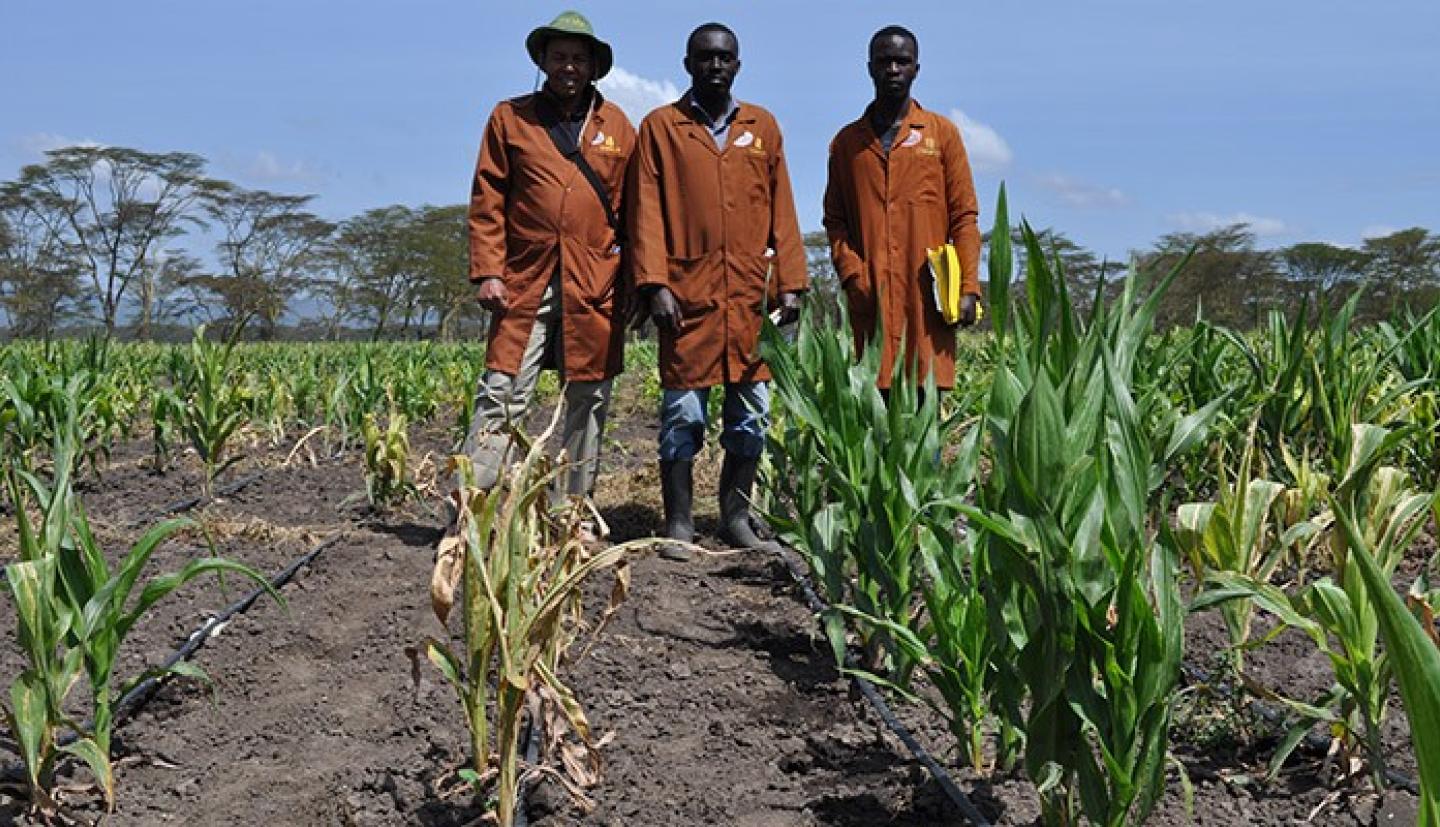Crop breeders in developing countries are facing challenges in their efforts to improve yields to feed growing populations, battle crop diseases, and counter the effects of drought, salinity and poor soils.
Modern genomic tools that make breeding new varieties cheaper, faster and more efficient would help meet those challenges, but developing such tools requires expertise, money, computing capabilities and training. In resource-strapped African and Asian countries, that can be a challenge, too.
The Genomic Open-source Breeding Informatics Initiative (GOBII), a global project funded by an $18.5 million grant from the Bill and Melinda Gates Foundation, is helping bridge the gap. The project – a partnership between an Ithaca-based hub of researchers at The Institute of Biotechnology, Cornell and the Boyce Thompson Institute (BTI) and other hubs in agricultural research centers in Mexico, India and Philippines – is making state-of-the-art genomic breeding techniques available to everyone. In May, GOBII released its first products, which include a data management system to organize and access huge amounts of genomic information, and user interface tools for efficient breeding.
“The purpose of the project is to help transform breeding programs in the developing world by implementing the most current methods being used by all major ag-tech companies around the world,” said Liz Jones, GOBII director. “Developing countries are missing out because the new methods, called genomic selection, require a huge amount of data support. Any crop can be readily sequenced these days, but to make good breeding decisions, that overwhelming volume of information needs to be harnessed, and the essential information extracted.”
GOBII has now developed an open-source software system. Researchers have been implementing the new products in collaboration with three partner public crop-breeding centers: the International Crops Research Institute for the Semi-Arid Tropics (ICRISAT) in India (working with sorghum and chickpea); the International Rice Research Institute in the Philippines (rice); and the International Maize and Wheat Improvement Center (CIMMYT) in Mexico (maize and wheat).
GOBII staff are working with researchers at these centers to collate, standardize and load historical genetic data on those five staple crops into their data management systems and then analyze the data to help make breeding selections. The goal is to create a global community of users who can share best practices and resources.
This month, at the GOBII annual meeting at ICRISAT in India, data managers, breeders and researchers from the three centers – along with Cornell, BTI and GOBII partners at both the James Hutton Institute in Scotland and Diversity Arrays Technology in Australia – reviewed how the systems work and planned the next steps.
Until now, major research institutes and multinational agricultural corporations have been the only ones with the expertise, funding and technology to develop these kinds of tools. As a result, “you get this ever-expanding gap between elite varieties developed by well-funded private breeding programs and varieties developed for farmers in the developing world by public breeding programs,” said Kelly Robbins, former GOBII director who recently joined Cornell’s faculty as an assistant professor of plant breeding and genetics.
Robbins is also a co-principal investigator on the Excellence in Breeding Platform, led by CIMMYT, which is also funded by the Bill and Melinda Gates Foundation. The platform is a sister initiative with GOBII and works to improve the efficiency of breeding programs in the developing world, especially sub-Saharan Africa and Southeast Asia.
With open-source software, GOBII plans to provide organizations in the developing world with the computational infrastructure needed for efficient breeding. “The hope is that we can increase the rates of genetic gain over time and close the gap in crop yields in these regions of the world,” Robbins said.
Traditional plant breeding takes time. Breeders will pair parents with desirable traits, plant thousands of progenies, weed out the undesirable ones, and gradually whittle the selections down to varieties that contain desirable traits. Over many years, this process leads to breeders discarding about 95 percent of their test crops.
Genomic selection allows breeders to examine the DNA of plants to shave years off the breeding process. Instead of trial and error and planting thousands of offspring, they can efficiently sequence the DNA in each offspring and see whether it contains the genes they want. In addition, the cost of sequencing genomes has dropped significantly; it’s cheaper, faster and more effective than traditional methods.
GOBII’s recently released visualization tools were developed in collaboration with the James Hutton Institute. The software allows users to import sequencing data and view it as color codes. Breeders can quickly sort and compare the genomes of parents and offspring to see which progeny might have the best combination of the parent’s genes. Researchers at CIMMYT have already used these products to help select lines of corn that are resistant to maize lethal necrosis, a devastating maize disease in sub-Saharan Africa.
The tools being developed as part of the GOBII project can also assure breeders that the seeds they plant are the result of the intended crosses. Breeders’ resources can be unintentionally rendered unusable by seed mix-ups and stray pollen contaminating a cross. By checking the DNA of a plant or seed, breeders may be assured that they are working on the right materials, thereby improving the efficiency of their breeding programs.
Next steps include testing and refining the data management system and integrating it with breeding management systems that track seeds, progeny and samples at each of the centers, so “breeders can go into one system and pull everything they want,” Jones said. GOBII is also working on cloud capabilities for these systems.
“These tools really enable countries in the developing world to transform their breeding programs through implementation of these newest methods,” said Jones.





